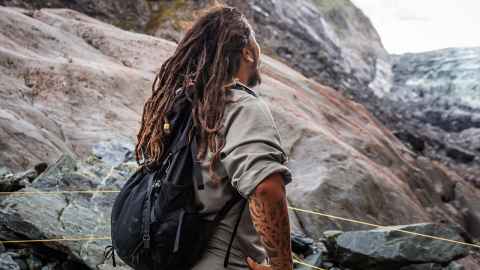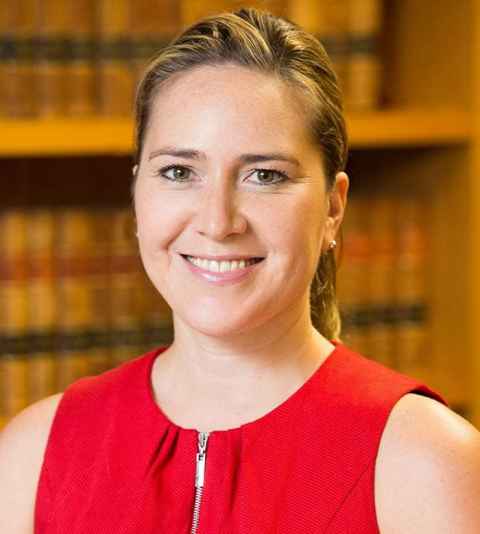Māori knowledge and kaitiaki key to conservation
11 July 2023
Aotearoa is part of a disturbing global picture that regularly dismisses Indigenous views on protecting the natural world, according to The Indigenous World 2023, which includes a chapter by law academic Fleur Te Aho.

Māori rights and developments in Aotearoa, particularly concerning conservation are highlighted by University of Auckland academic Dr Fleur Te Aho (Ngāti Mutunga) in the 2023 edition of The Indigenous World, which details the state of Indigenous peoples’ rights around the world in 2022.
This year's edition closely examines Indigenous rights in relation to conservation efforts, and although a number of studies show that Indigenous people are among the most effective guardians of nature, reports in the edition highlight a disturbing global picture of conservation efforts ignoring Indigenous peoples’ voices, rights and knowledge.
The situation in Aotearoa reflects this overarching picture, says Te Aho. For example, she notes that although a member's bill was introduced in 2022 to amend the Crown Minerals Act to prohibit permits for mineral mining, prospecting, and exploration over conservation lands and waters, it has not progressed past its first reading.
The 1991 Act, says Te Aho, is focused on promoting the exploitation of Crown-owned minerals. This conflicts with the kaitiaki (guardianship) responsibilities of iwi (nations) and hapū (extended kinship groups) with mana whenua (territorial authority) over those areas.
In the chapter she reports that the proposed overhaul of New Zealand’s resource management law also affects environmental protection and has ramifications for Māori.
At the end of 2022, the Spatial Planning and the Natural and Built Environment Bills had both passed their first reading and were before the select committee, which has since reported on the Bills. “[O]ne major concern regarding the bills is that they do not honour te Tiriti, particularly because the Natural and Built Environment Bill does not effectively recognise or empower Māori to exercise their tino rangatiratanga under te Tiriti,” writes Te Aho.
The Bill proposes recognising only some Māori rights (and responsibilities) and not others, and it conceptualises the health of the natural environment in a Eurocentric way, according to the chapter.

Also within the chapter on the situation in Aotearoa, Te Aho details concerns around water reforms, such as the controversial, recently amended Water Services Entities Act 2022, which purports to provide for co-governance with mana whenua.
Some Māori concerns, however, include the fact that proper co-governance is not reflected in the Act and that they will effectively lose control over their water systems, says Te Aho.
Meanwhile, the chapter also spotlights stalled action on a draft declaration plan to guide the Government’s progress towards implementation of the United Nations Declaration on the Rights of Indigenous Peoples, which is a comprehensive international human rights document on the rights of Indigenous peoples.
"A draft declaration plan developed in partnership between the government, the National Iwi Chairs Forum's Pou Tikanga and the Human Rights Commission, was set to be released for public consultation, but this did not happen," writes Te Aho, adding that there have been concerns that public backlash regarding Māori rights, particularly in relation to co-governance arrangements with Māori, has dampened the government's commitment to the plan.
Also highlighted in the chapter are serious concerns regarding the human rights situation of Māori with disabilities and discussion around the importance and acknowledgement of the place of tikanga Māori (Māori law and custom) in State law.
The Indigenous World is a yearly publication that serves to document and report on the developments Indigenous Peoples have experienced throughout the previous year. Dr Fleur Te Aho has contributed the section on Māori for over a decade.
Media contact:
Sophie Boladeras, media adviser
M: 022 4600 388
E: sophie.boladeras@auckland.ac.nz